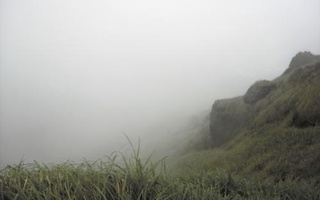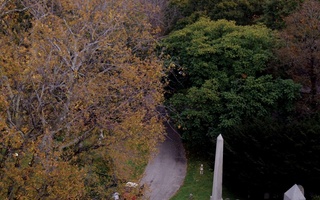Violinist Max Tan ’15 made his Symphony Hall debut on March 7, playing Samuel Barber’s Violin Concerto along with the Benjamin Zander-directed Boston Philharmonic Youth Orchestra. The Crimson caught up with Tan before his performance to chat about music, school, and striking the precarious balance between the two.
The Harvard Crimson: Have you always known music would be such a big part of your life?
Max Tan: I don’t think so. I think I knew that music was something I was very attached to, but I didn’t really quite understand why or how until I was 15 or 16. That’s a long time to be in music—I started piano when I was four—and not know exactly why. Music was something I really liked, and it was another avenue of expressing myself, and I was good at it, so I stuck with it. But I don’t think until my teenage years I quite understood what it meant to emote something through music.
THC: Why have you chosen to stay involved with BPYO as opposed to HRO or one of the other Harvard music ensembles?
MT: I don’t think it’s necessarily a decision to stay with one group over the other. I think one of the things that’s difficult about Harvard is that there are so many wonderful groups on campus, and you just want to do everything. I remember my freshman year I was in HRO, I was in...Dunster House Opera, I was in Brattle [Street Chamber Players], I did [the Harvard Pops Orchestra] for a semester, and on the side I did private lessons, and I was also doing chamber music—and so I died. That’s a huge understatement…. Sometimes people do groups because they want to do it for their friends, and they want to do it for the organization, and they want to do it for the tradition—and then there’s the other route, which is: if I do want music to be part of my life, which one will cultivate [in me] something I think is lacking?
THC: How do you balance schoolwork and music? Do you find it challenging?
MT: It’s definitely challenging. Before coming here, it would be a struggle to maybe get two, three hours of practicing in a day—but I’d still get two, three hours of practicing in a day. Here, it’s a struggle to get…an hour. But that doesn’t mean I’m practicing less. That means I’m spending time with my instrument less. I do a lot of mental practicing: I practice things through in my head as if I were playing, but I’m not doing physical practice.
Read more in Arts
For the Record: "Be"Recommended Articles
-
 The Community of All We Can See
The Community of All We Can See -
BREAKING NEWS: Student Hit by Truck on Mt. Auburn StreetA female student was hit by a truck near the intersection of Mt. Auburn Street and Dunster Street yesterday at ...
-
Kirkland Sophomore Injured in AccidentA Harvard undergraduate was hit by a moving truck near the intersection of Mt. Auburn Street and Dunster Street yesterday at approximately 4:30 p.m.
-
 Dallying with the Dead
Dallying with the Dead -
Structures in Time & Place: Snapshots of the Harvard Hillel's Construction"For historical reasons Jews did not build impressive monuments in stone and wood, but concentrated their creative genius on constructing inspiring structures in time."
-
Students Art Show Gets A New LookThe 4th Annual Harvard Student Art Show will take place in a gallery on Mount Auburn Street this year.














